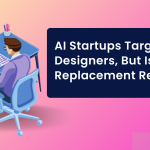Quick Take:
A startup CEO’s bold claim that AI will replace human translators in three years sparks industry skepticism and broader concerns about cultural nuances and job impacts.
Disruptive Claims in a High-Stakes Industry
The translation industry has seen disruptive promises before, but the CEO of an AI startup made headlines recently by asserting that human translators will no longer be necessary within three years. While such declarations grab attention, they often raise eyebrows among professionals who understand the complexities of language translation and the nuanced demands of global communication.
The Reality of AI in Translation
AI translation tools like ChatGPT and dedicated platforms have made notable strides, especially in commonly used languages like English, Spanish, and French. They excel in technical, legal, and medical contexts, where structured language minimizes ambiguity. However, experts argue that these tools still falter in translating cultural nuances, idiomatic expressions, and lesser-used languages.
A commenter aptly summarized the industry’s sentiment: “AI is amazing. But it won’t replace humans in the next decade or maybe in our lifetimes.” This view highlights the gap between AI’s strengths in automation and its limitations in capturing context and emotion.
Skepticism from Translation Professionals
Industry veterans expressed doubts about the CEO’s timeline. Many pointed to AI’s current struggles with certain language families, such as Asian and indigenous languages, and its difficulty with creative or conversational content. A translator with two decades of experience noted, “AI is good for technical content but fails with emails, speeches, and marketing—anything requiring cultural sensitivity.”
This skepticism is further fueled by professionals’ firsthand experiences with machine translation inaccuracies, which can result in costly misunderstandings in high-stakes sectors like healthcare and law.
Ethical and Economic Implications
Beyond technical limitations, the promise of AI replacing translators has raised concerns about its social impact. Translators, particularly those specializing in critical fields, worry about declining job opportunities and eroded pay structures. As one former translator remarked, “By May 2025, work dried up entirely… agencies now expect post-editing of machine translation for a fraction of the price.”
Moreover, reliance on AI for translation poses risks for businesses. Errors in user manuals, contracts, or medical guides could lead to legal liabilities and tarnished reputations.
A Future of Collaboration, Not Replacement
While AI continues to advance, most experts believe the future lies in human-AI collaboration rather than outright replacement. AI could handle bulk translations, enabling humans to focus on editing and nuanced content, ultimately expanding global accessibility while preserving quality.
The CEO’s claim may have been designed to generate buzz, but the broader discussion it sparked underscores the importance of balancing innovation with pragmatism. In translation, as in many fields, hype must meet reality to deliver real value.


